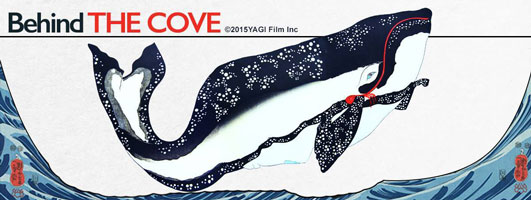By Bruce Rutledge
When a documentary depicting the annual dolphin hunt in the Japanese whaling town of Taiji was released in 2009, it sent shock waves around the world. The documentary, called “The Cove,” won an Academy Award and prompted loud and long international condemnation of the hunt. But in Japan, it didn’t make much of a ripple. “I realize that a lot of the attention is … not getting through in Japan, but it is in the rest of the world,” Richard O’Barry, a dolphin-rights activist featured in “The Cove,” says in a new counter documentary called “Behind the Cove” that was released on Netflix in late April.
“Behind the Cove,” by first-time filmmaker Keiko Yagi, attempts to discredit the earlier film by exposing the bias, cultural prejudice, and hypocrisy of the people behind “The Cove.” Yagi argues through interviews, raw footage, and cultural analysis that the Japanese were victims of pushy Westerners out to depict them as blood-thirsty hunters. Japanese people in her film complain that the Japanese are too polite and quiet in these types of situations.
Reviewers in the West have not been kind. The Village Voice panned the film, and the Los Angeles Times called it “amateurish.” But Yagi is undeterred. She says the film crew of the Western film “intentionally portrayed Taiji, a peaceful tiny fishing town in reality, as a scary place.” She also condemns right-wing groups in Japan who tried to get “The Cove” banned. “I am against them both — being silent (to the criticism of the whaling) or using loudspeakers to suppress freedom of expression. I wanted to use footage in order to refute footage,” she told The Japan Times last year. Now, people can make up their own minds after watching “Behind the Cove: The Quiet Japanese Speak Out” on Netflix.








